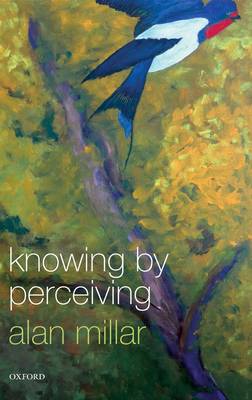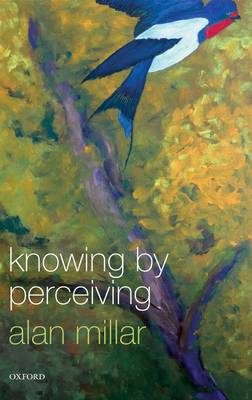
- Afhalen na 1 uur in een winkel met voorraad
- Gratis thuislevering in België vanaf € 30
- Ruim aanbod met 7 miljoen producten
- Afhalen na 1 uur in een winkel met voorraad
- Gratis thuislevering in België vanaf € 30
- Ruim aanbod met 7 miljoen producten
Zoeken
Omschrijving
Epistemological discussions of perception usually focus on something other than knowledge. They consider how beliefs arising from perception can be justified. With the retreat from knowledge to justified belief there is also a retreat from perception to the sensory experiences implicated by perception. On the most widely held approach, perception drops out of the picture other than as the means by which we are furnished with the experiences that are supposed to be the real source of justification-experiences that are conceived to be no different in kind from those we could have had if we had been perfectly hallucinating. In this book a radically different perspective is developed, one that explicates perceptual knowledge in terms of recognitional abilities and perceptual justification in terms of perceptually known truths as to what we perceive to be so. Contrary to mainstream epistemological tradition, justified belief is regarded as belief founded on known truths. The treatment of perceptual knowledge is situated within a broader conception of epistemology and philosophical method. Attention is paid to contested conceptions of perceptual experience, to knowledge from perceived indicators, and to the standing of background presuppositions and knowledge that inform our thinking. Throughout, the discussion is sensitive to ways in which key concepts figure in ordinary thinking while remaining resolutely focused on what knowledge is, and not just on how we think of it.
Specificaties
Betrokkenen
- Auteur(s):
- Uitgeverij:
Inhoud
- Aantal bladzijden:
- 240
- Taal:
- Engels
Eigenschappen
- Productcode (EAN):
- 9780198755692
- Verschijningsdatum:
- 6/04/2019
- Uitvoering:
- Hardcover
- Formaat:
- Genaaid
- Afmetingen:
- 157 mm x 234 mm
- Gewicht:
- 476 g

Alleen bij Standaard Boekhandel
+ 322 punten op je klantenkaart van Standaard Boekhandel
Beoordelingen
We publiceren alleen reviews die voldoen aan de voorwaarden voor reviews. Bekijk onze voorwaarden voor reviews.








